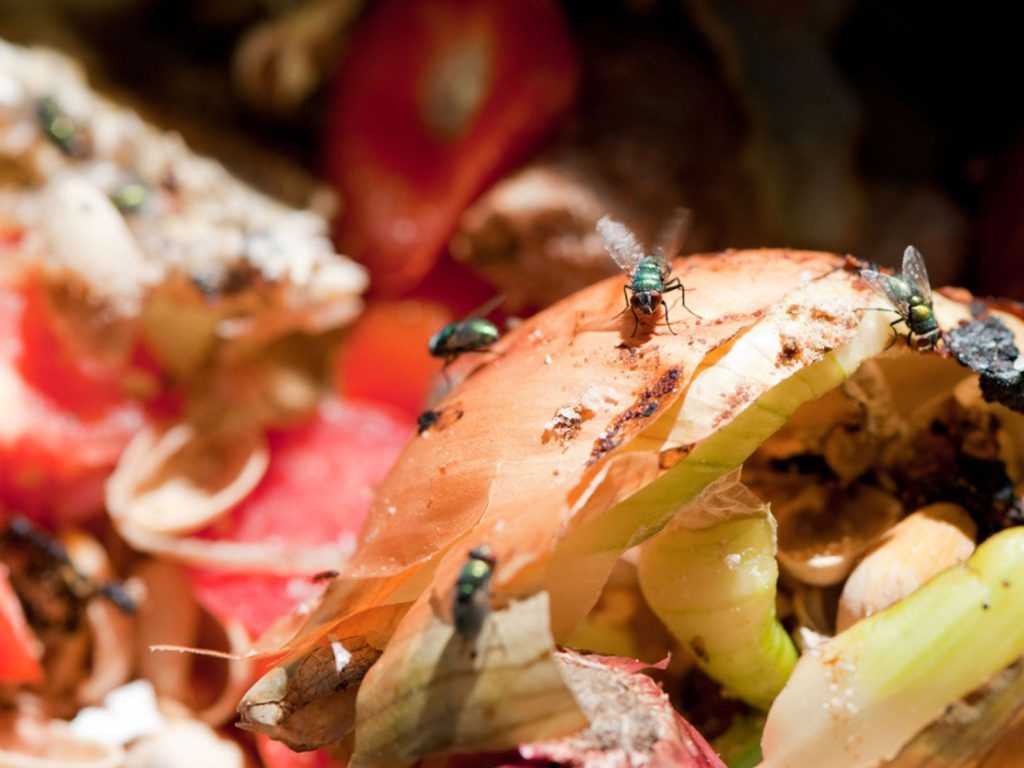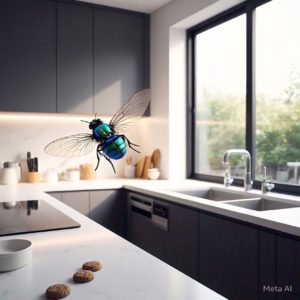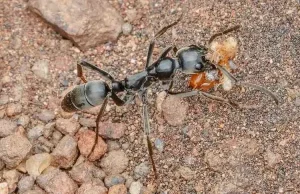Composting at home is a fantastic way to reduce waste, enrich your soil, and contribute to a greener planet. However, when done incorrectly, attracting flies can be a major concern.
Let’s explore why flies are drawn to compost, the incredible benefits of composting, and how you can maintain a fly-free composting experience.
Why do flies love compost?
Flies are naturally attracted to decaying organic matter, and that’s exactly what compost is all about. The odour and warmth produced during the decomposition process are like magnets for them. While a certain level of insect activity is normal and even beneficial for the composting process, excessive flies can be a nuisance.

If you are composting at home but are struggling to keep flies away, please don’t stop. There is a solution!
Tips for Composting Without Attracting Flies:
1. Cover food scraps:
Bury kitchen scraps beneath the top layer of the compost or cover them with a layer of brown material. This minimizes exposure and reduces the chances of attracting flies.
What is brown material?
In composting, there are two main types of materials: green and brown. Green materials are rich in nitrogen, such as kitchen scraps (fruit and vegetable peels, coffee grounds, etc.), while brown materials are rich in carbon, such as dried leaves, straw, cardboard, or newspaper.
2. Use a compost bin with a lid:
A closed compost bin helps contain odours and restricts fly access. Ensure proper aeration by turning the compost regularly to promote a healthy decomposition process.
3. Avoid meat and dairy products in your compost:
These items can attract more flies due to their strong odour. Stick to vegetable scraps, coffee grounds, and eggshells for a more fly-resistant compost pile.
4. Add citrus peels to the compost:
Flies are repelled by the scent of citrus. Incorporate citrus peels into your compost to deter them naturally.
By understanding the factors that attract flies and implementing these simple tips, you can enjoy the benefits of composting without the unwanted buzz. Create nutrient-rich soil for your plants and contribute to a healthier planet, one compost pile at a time.
Happy composting!





